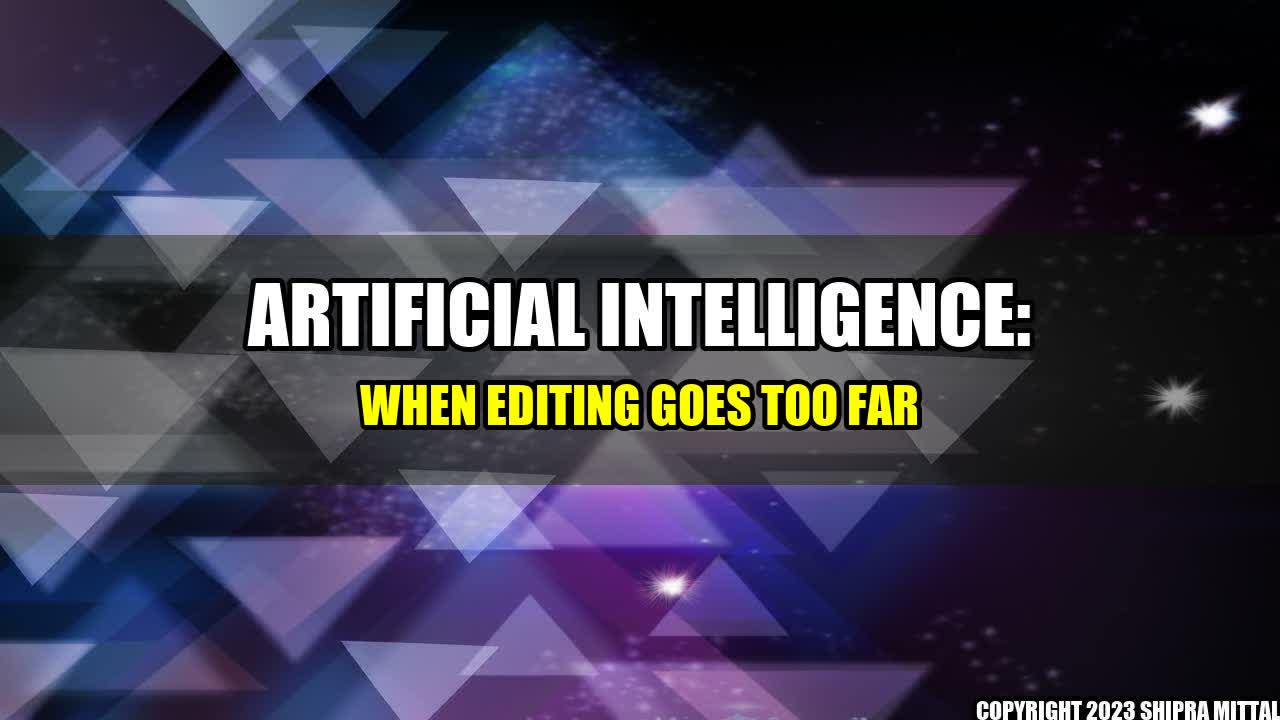
As a writer, I've always held a deep appreciation for the art of editing. It's the final polish that makes a piece truly shine, the difference between a good article and a great one. But with the advancement of AI technology, it seems that the role of the editor may be changing.
Google's new AI-powered Magic Editor promises to revolutionize the editing process by analyzing your writing and suggesting changes for everything from grammar to tone. At first glance, it seems like a handy tool for busy writers who want to polish their work quickly and efficiently. But the more I thought about it, the more uneasy I became.
There's something deeply unsettling about the idea of a machine taking over a task that's traditionally been handled by humans. Editing isn't just about correcting errors; it's about understanding the writer's voice and intent, and helping them to communicate their message as effectively as possible. Can an AI algorithm really replicate that kind of nuance?
I decided to try the Magic Editor out for myself, and I must admit, the results were impressive. The tool offered up a variety of suggestions for improving my writing, from adjusting my word choice to tightening up my sentences. But as I scrolled through the suggested changes, I couldn't help feeling like something was missing.
Editing isn't just about making improvements based on formulas or algorithms; it's about listening to the writer and understanding their perspective. A good editor knows when to challenge an idea, when to push for stronger language, and when to step back and let the writer's voice shine through. I'm not convinced that an AI tool can replicate that level of insight and empathy.
Perhaps the larger concern with AI-powered editing tools is the potential for creating homogenized, generic writing. If we all start relying on the same algorithms and formulas, won't our writing begin to sound the same? Where's the room for experimentation, creativity, and individuality?
These are just a few of the questions that come to mind when considering the future of editing in an age of AI. While I'm not convinced that these tools will ever replace a skilled human editor, I do think they have their place in certain contexts. For example, for non-native speakers or someone who just needs a quick polish for a business email.
In conclusion, while AI-powered editing tools like Google's Magic Editor may be impressive in their ability to catch errors and make suggestions, they can never replicate the unique human touch of a skilled editor. As we continue to grapple with the ethical and practical ramifications of AI technology, it's worth remembering that there's still no substitute for the intuition and empathy that comes from being human.
Reference URLs:
https://www.tomsguide.com/news/google-magic-editor
https://ai.googleblog.com/2021/08/announcing-magic-editor-ai-powered.html
Hashtags: #AI #editing #writing #Google #technology
SEO Keywords: Google AI, Magic Editor, Editing with AI
Article Category: Technology/Artificial Intelligence
Curated by Team Akash.Mittal.Blog
Share on Twitter Share on LinkedIn